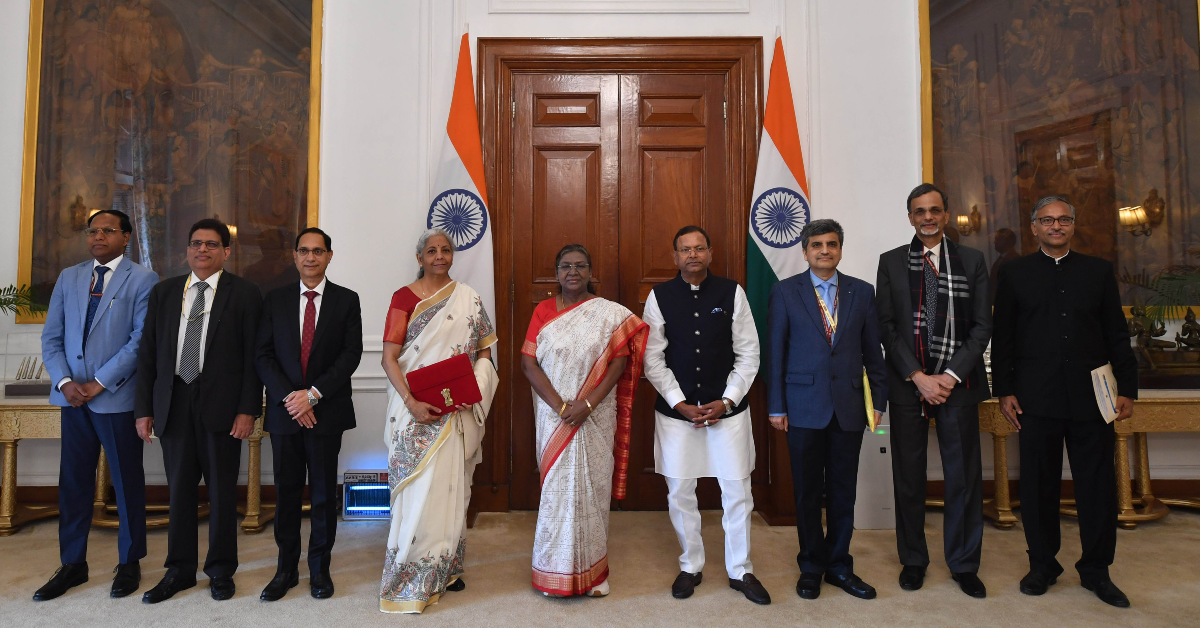In her eighth budget speech, Finance Minister Nirmala Sitharaman announced a number of initiatives to boost the domestic electronic equipment sector, such as the establishment of a Deep Tech fund, exemptions for specific parts used in the assembly of mobile phones, and a 10% increase in customs duty on interactive flat panel displays. In Budget 2025, the FM has also suggested a duty exemption for 12 essential minerals, including lead, zinc, lithium-ion battery scrap, and cobalt powder and waste. A National Manufacturing Mission has also been established by the government to encourage the production of solar PV cells, EV batteries, motors, controllers, electrolysers, wind turbines, high-voltage transmission equipment and grid-scale batteries in the country.
In This Article
Mobile phones, TVs and other electronics
- The basic customs duty (BCD) on mobile phones, mobile components, and accessories has been reduced to 15%.
- The Indian government will lower the Basic Customs Duty on carrier-grade Ethernet switches from 20% to 10% in order to avoid classification disputes.
- The domestic electronic equipment business will receive government help.
- Sitharaman declared that the customs duty on interactive flat panel displays would be raised by 10%, but that the existing 2.5% duty on LCD/LED television open cell production would not apply. In order to support local manufacturing efforts of international companies such as Apple and Xiaomi, the Finance Minister announced that certain components used in mobile phone assembly, such as camera modules, connectors, USB cables, fingerprint readers, and wired headset materials, will be exempt from customs duty.
- The establishment of a Deep Tech fund to assist companies with technical and non-technical backgrounds in implementing their ideas was announced by FM Nirmala Sitharaman.
Automobiles and AI
- In Budget 2025, Finance Minister Nirmala Sitharaman has suggested a tariff exemption for 12 essential minerals, like lead, zinc, lithium-ion battery trash, and cobalt powder and waste, to ensure their supply for Indian manufacturers. She also announced the addition of 28 capital goods for the production of mobile phone batteries and 35 more for the production of EV batteries.
She said, “To the list of exempted capital goods, I propose to add 35 additional capital goods for EV battery manufacturing and 28 additional capital goods for mobile phone battery manufacturing. This will boost the domestic manufacture of lithium-ion batteries both for mobile phones and for electric vehicles.”
- The National Manufacturing Mission was launched by Sitharaman to encourage the production of solar PV cells, EV batteries, motors, controllers, electrolysers, wind turbines, high-voltage transmission equipment and grid-scale batteries in the country.
- Along with the current government commitment of Rs 10,000 crore, FM Nirmala Sitharaman has committed an extra Rs 10,000 crore to startups.
- The new manufacturing mission being launched by the Make in India initiative aims to increase manufacturing in all industry sizes, small, medium, and large, with a particular focus on developing an ecosystem for solar PV cells, electrolysers, and grid-scale batteries, all supported by comprehensive policy.
- The FM announced infrastructural development in IITs established after 2015, which will accommodate 6,500 more students across five IITs, and announced a Centre of Excellence for AI in Education with a Rs 500 crore budget.
- The Indian government plans to enter the global AI race by developing basic AI models similar to DeepSeek’s R1 and OpenAI’s ChatGPT.
“I had announced three centres of excellence in artificial intelligence for agriculture, health and sustainable cities in 2023. Now, a centre of excellence in artificial intelligence for education will be setup with a total outlay of Rs 500 crore,” the FM said.



